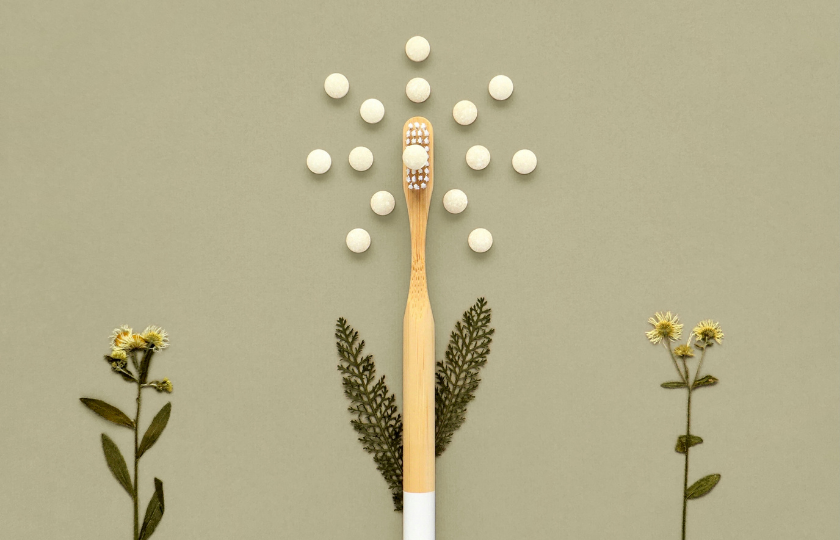While some factors in our lifestyle like what we eat, what we wear, and how we travel produce a lot of carbon footprint, tasks as simple as brushing our teeth can also leave much waste.
Globally, 1.5 billion toothpaste tubes are discarded each year. And because most tubes are made of mixed materials like aluminium and plastic, they are very difficult to recycle and often end up in landfills.
And that’s just toothpaste.
While many initiatives promote sustainability in food, transport, and fashion, we should also consider improving our lifestyle. Here are a few tips you can do for a more sustainable oral care routine.
Sustainable oral care tips
Turn off your tap while brushing your teeth
Many of us are guilty of leaving the tap on while we brush our teeth. It may seem “convenient” to let the water run down the drain, but did you know that turning off the tap while brushing your teeth can help save 36 to 54 litres of water a day?
Aim for conservation rather than convenience. It’s easy to turn it off and on when you need it. Flowing water is not something you want to accompany you during your oral care routine.
Use a glass or a cup to rinse
Here’s a really useful tip – one of the best practices you can add to your oral care routine. Use a glass or a cup to brush your teeth instead.
About 250ml of water is enough. You can wet the toothbrush by dipping it into the cup/glass to rinse your toothbrush or rinse your mouth a bit before brushing your teeth.
Avoid using electric toothbrushes
Buying a toothbrush made of plastic is already a problem since they usually end up in landfills – the same with batteries from electric toothbrushes.
Battery leaks are harmful to the environment. Since batteries corrode with time, their chemicals soak and contaminate the soil, groundwater, and, even worse, the surface water.
Battery chemicals can compromise our ecosystem. Aside from being harmful to aquatic plants and animals, they can also be a danger to humans.
Use a bamboo toothbrush
Buying bamboo toothbrushes can make a difference – and they are a good way to make one of your first steps towards sustainability.
Generally, toothbrushes are made of plastic, rubber, and basically, non-degradable or non-recyclable materials like their plastic handles or nylon bristles.
Bamboo toothbrushes, on the other hand, are biodegradable and compostable. They can easily break down in landfills, and they work just as well as your typical plastic toothbrush. Among the mainstream manufacturers to produce bamboo toothbrushes is Colgate-Palmolive.
However, using a bamboo toothbrush has its own set of cons. It’s prone to mildew and bacteria, so keep your toothbrush dry after using.
Use dry toothpaste
While liquid toothpaste isn’t technically bad for the environment, its packaging is. The caps, plastic tubes, and boxes with a plastic seal can be wasteful.
On the other hand, toothpaste tablets or powders are highly concentrated and water-free. So they require less packaging to stay fresh. Additionally, these toothpaste alternatives are sold in jars, cardboard containers, or aluminium tins that can are all recyclable and sustainable.
Install a faucet flow restrictor or aerator
You can also conserve more water if you install a faucet flow restrictor to regulate water flow from the tap.
It can effectively reduce water consumption by up to 50 per cent while continuing to provide good enough flow and pressure. Additionally, it’s really easy to install, with no need for specialised tools or equipment.
Additionally, an aerator installed at the end or inside the faucet’s spout can effectively reduce the amount of energy required to heat the water.
The bottom line
It’s completely unsettling how wasteful an oral care routine is without realising it. While it might seem a small step, beginning a sustainable oral care routine can help us work towards bettering our planet.



